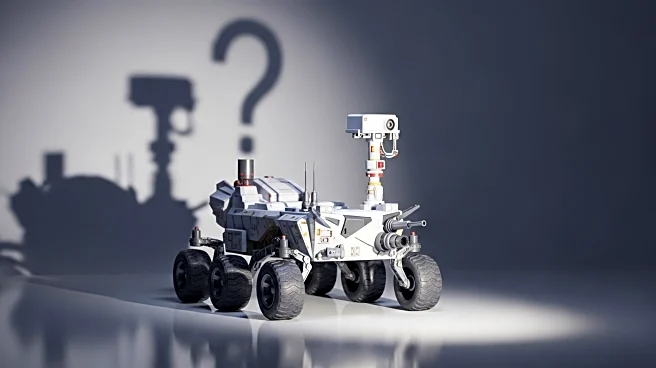What's Happening?
The Jet Propulsion Laboratory (JPL) is undergoing a significant restructuring, resulting in the layoff of approximately 550 employees. This decision, announced by JPL Director Dave Gallagher, is part of a broader initiative to ensure the lab's long-term sustainability. The layoffs affect various sectors, including technical, business, and support roles, and are aimed at creating a leaner infrastructure and maintaining fiscal discipline. Gallagher emphasized that the layoffs are not related to the current federal government shutdown but are necessary to adapt to the rapidly changing space industry. The Mars Sample Return (MSR) mission, once considered a groundbreaking project, faces financial uncertainty due to escalating costs. The Trump administration's proposed 2026 federal budget suggests eliminating MSR funding, citing budget overruns. Affected employees will be informed of their employment status on October 14.
Why It's Important?
The restructuring at JPL highlights the challenges faced by organizations in the space industry as they navigate financial constraints and evolving priorities. The layoffs and potential defunding of the Mars Sample Return mission could impact the U.S.'s position in space exploration and scientific research. The decision to cut jobs reflects a broader trend of budgetary pressures affecting government-funded projects. This move may influence other space agencies and contractors, potentially leading to shifts in project timelines and priorities. The restructuring aims to ensure JPL's competitiveness and ability to deliver on its mission for NASA and the scientific community, but it also underscores the precarious nature of funding for ambitious space projects.
What's Next?
As JPL proceeds with its restructuring, the lab will need to reassess its ongoing projects and mission timelines. The impact of the staffing reductions on current and future initiatives remains unclear. Stakeholders, including NASA and the scientific community, will likely monitor the situation closely to understand how these changes affect JPL's capabilities. The potential elimination of funding for the Mars Sample Return mission may prompt discussions on alternative strategies for Mars exploration and sample retrieval. JPL's leadership will need to navigate these challenges while maintaining its commitment to innovation and scientific discovery.
Beyond the Headlines
The layoffs at JPL raise questions about the sustainability of large-scale space missions in the face of budgetary constraints. The decision to restructure may reflect broader economic pressures and shifting priorities within the U.S. government. Ethical considerations regarding the impact on employees and the scientific community may arise, as well as discussions on the balance between fiscal responsibility and scientific advancement. The situation could lead to long-term shifts in how space exploration projects are funded and managed, potentially influencing international collaboration and competition in the space sector.









